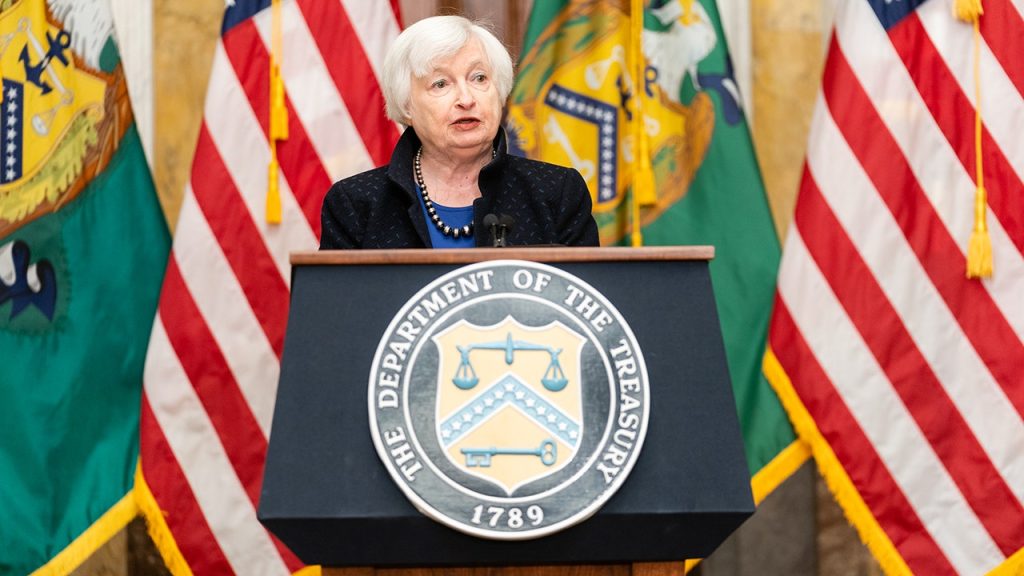Treasury Secretary Janet Yellen on Tuesday struck an optimistic tone about the state of the global economy, saying that it is faring better than many expected in the fall despite persistent inflation and recent turmoil within the banking sector.
“During the G20 [meeting] in February, I said that the global economy was in a better place than many predicted last fall. That basic picture remains largely unchanged,” Yellen said during remarks prepared for delivery at the start of the World Bank and International Monetary Fund’s spring meetings.
The meetings come just weeks after the collapse of two regional lenders in the U.S. – Silicon Valley Bank and Signature Bank – rattled global markets amid fears of a more expansive financial crisis. Swiss lender Credit Suisse also teetered on the edge of failure before UBS snapped up its smaller rival in a nearly $3.25 billion deal.
JAMIE DIMON WARNS BANKING CRISIS HAS RAISED ODDS OF RECESSION
Within days, U.S. authorities took extraordinary steps to contain the fallout from the banks’ failures and shore up wavering confidence in the financial system, including protecting all deposits at the two institutions – even those accounts that exceeded the Federal Deposit Insurance Corporation’s $250,000 insurance limit.
“The U.S. banking system remains sound, with strong capital and liquidity positions,” Yellen said. “The global financial system also remains resilient due to the significant reforms that nations took after the financial crisis.”
Her upbeat comments stand in contrast to the rather gloomy economic forecast released by the IMF on Tuesday morning. In its latest World Economic Outlook, the Washington-based institution projected that global GDP will grow by just 2.8% this year – which represents a 0.1 percentage point decline from its previous forecast in January – before rising to 3% in 2024.
HOW THE BANKING CRISIS COULD HAMMER SMALL BUSINESSES

“The major forces that affected the world in 2022… seem likely to continue into 2023,” the report said. “But these forces are now overlaid by and interacting with new financial stability concerns. A hard landing – particularly for advanced economies – has become a much larger risk. Policymakers may face difficult trade-offs to bring sticky inflation down and maintain growth while also preserving financial stability.”
The contrast is even sharper in developed nations, which are struggling to absorb the effects of tighter monetary policy after a decade of ultra-low interest rates. About 90% of advanced economies are expected to see a decline in GDP this year, with the IMF projecting meager growth of just 1.3% in 2023 and 1.4% next year.
The U.S. economy is likely to grow just 1.6% this year and 1.1% next year, according to the IMF, a slight improvement from the January projections.
Read the full article here




